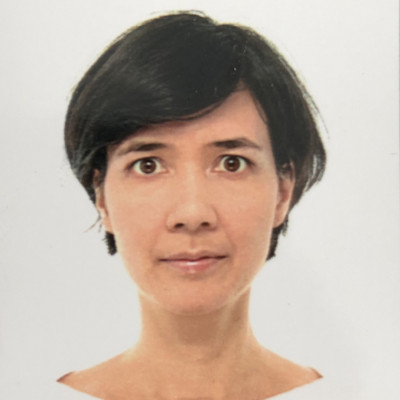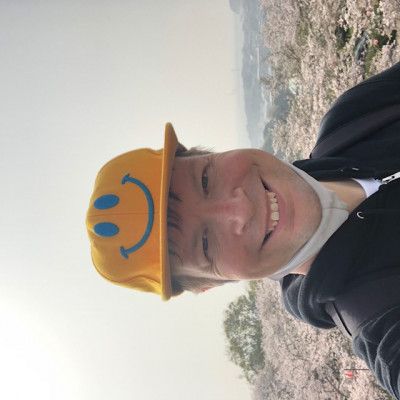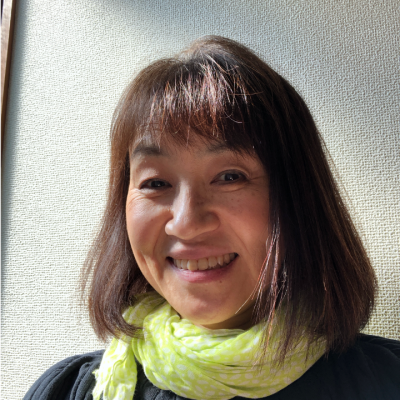Sessions / Location Name: Room F
Virtual Location
Virtual: You cannot enter virtually via this page. Click on the titles of individual presentations or go to the Live Page
Accelerating feedback in communicative language teaching/pal contexts using spreadsheets #1512
Performance Assisted Learning (PAL) is a teaching method that can yield great benefits—such as personal growth—all the while accomplishing immediate syllabus objectives. PAL is inspired by approaches to learning such as communicative language teaching (CLT). Kindred to CLT, PAL activities sometimes ask learners to extend themselves (for their ultimate benefit) beyond their habitual comfort zones. Without due diligence though, such activities can be difficult to evaluate and document to everyone’s satisfaction—learners, teachers, and administrators… Spreadsheets can help remedy this quandary. Unfortunately, they are an under-employed (dare I say mystery?) resource for many classroom practioners. Basic spreadsheet usage is not difficult, and teachers can use them to facilitate and actualize a realm of CLT/PIE possibilities. This Show & Tell presentation will demonstrate spreadsheet use for (a) enabling latitudes of choice for learners, (b) guiding and mentoring learners in online or face to face conditions, and (c) rapidly conveying feedback to students about their efforts.
Effective Online Measurement of Student Learning Outcomes during the Covid-19 Pandemic #1442
The Covid-19 pandemic has significantly impacted teaching, learning and testing. Student Learning Outcomes (SLO) are no longer assessed through the measurement of achievement in regular (on campus) exams. Research in this field has been so far oriented towards the online teaching methods and assessment but little has been done so far on the review of the SLO measurement methods. The traditional approach to the measurement of learning outcomes has mainly been based on the test-based measures including grades to assess the achievement of generic skills or disciplinary skills and competencies. A review of SLO measurement methods has become a necessity in order to ensure accuracy and efficiency. Taking into account insights from research on online teaching and assessment, we propose an alternative SLO measurement model that unites self-reported measures such as surveys with test-based measures (grades) to ensures more accuracy and efficiency in the measurement of student learning outcomes of online classes. We discuss the implications of this new approach to online teaching and assessment and illustrate how this combined approach might be implemented in the measurement of on line classes SLOs.
Active learning strategies for hybrid online lessons #1391
Learning strategies and lesson delivery methods are changing rapidly and with an increase in remote learning, many practitioners have found themselves conducting hybrid lessons, where some of their students are face to face and others are online. Needless to say, finding effective ways to achieve course objectives while maintaining student motivation and participation can be quite challenging. This poster presents various active learning techniques which have the potential to enhance hybrid learning environments, leading to increased engagement and improved student outcomes.
Teaching Professional and Technical Communication with New Media Design: Towards Linguistic Entrepreneurship in a COVID-2019 Landscape #1394
The COVID-19 landscape provides a unique opportunity for computer science (CS) majors to learn about the redefined impact of disruptive technologies in the market that will likely influence how we conduct our businesses in years to come, and in turn, shape our workplace and residential environment. However, regular CS courses are expectedly not always focused on such global understanding, and therefore not providing much opportunity for students to develop an overall macro understanding of how serious realignment is happening in the technology market with the advent of COVID-19. This is where the language courses based on digital entrepreneurial storytelling and focused on professional and technical communication add value for CS majors. Digital storytelling as a business model is getting more established. This presentation will showcase the pedagogical value and curriculum design of an elective soft-hard CLIL based professional and technical communication course on entrepreneurship and innovation using assignments based on digital storytelling. The course content used topics on contact tracing apps, virtual therapy, and mental health apps, 3D printing, RFID technology, the shifting focus of different industries, video calling/streaming, Stanford’s design for extreme affordability program, drones to monitor social distancing, telehealth/telemedicine, use of drones, AI and big data to fight COVID-19. The presentation will discuss results of student performance with such content in a language classroom, and how to promote entrepreneurial thinking with the use of different information design exercises using SWOT analysis online templates, promotional video design rubrics, and sentiment analysis. The presentation will further highlight student perceptions about such professional and technical communications assignments in the course.
To Zoom or not to Zoom? Privacy concerns and students’ attitude towards online learning #1400
This presentation will attempt to offer insight into how students’ reacted towards greater use of videoconferencing software as the primary conduit of their language learning courses at the university level. In particular it will present data and offer analysis into students’ attitude towards how their privacy was impacted by the switch from the physical to the digital classroom. In order to facilitate learning under the COVID-19 pandemic, instructors had to speedily adapt to a ‘new normal’ of intense videoconferencing online language learning. Yet, did the decision by many educational institutions to transform to an online learning format have unintended consequences in relation to learners’ privacy? More importantly, in the future what lessons can be learnt, and what new parameters need to be set, to ensure that learners remain confident in an online learning environment setting?
The main research data included in this presentation was carried out at a national university in Japan. With additional research collected from a national university in Ukraine. 353 students completed surveys twice-a-semester between April 2020 and March 2021. The courses included in the study were compulsory English language classes for first and second year university students. The videoconferencing software used was Zoom and Microsoft Teams. The findings indicate that 32% of students expressed some privacy concerns, but accepted that compromises had to be made during the Coronavirus Pandemic. However, crucially this number rose to 71% if videoconferencing language classes were to remain a permanent part of their language learning process.
Active stakeholder perspectives on the internal- and external-alignment of a first year EGAP writing course #1401
This practical, ongoing research project represents an initial inquiry into an intact required first-year once-a-week English-Mediated Instruction (EMI) English for General Academic Purposes writing (EGAP-W) course, focusing on the perspectives of the active stakeholders (i.e., students and teachers) on the perceived degree of constructive alignment (CA) at both course and curriculum level. As CA incorporates a range of rugged-yet-reliable educational theories, chief among them the learning context and processes, student approaches to learning, and curriculum development, this project investigates the representations of the educational system in which the stakeholders are operating. A convergent mixed-methods approach incorporated both quantitative (n = 397) and quantitative (n = 5) data from enrolled student-participants as well as qualitative data from semi-structured interviews with EGAP-W instructors (n = 6) in order to gain deeper insight into stakeholders’ perspectives. Initial results suggest that while course-internal alignment is perceived by the stakeholders as being relatively high, with students acknowledging the relevance of taught skills, course-external alignment is perceived as weak. In addition, secondary implications of note for both curriculum development and EMI were revealed. It is hoped that results and procedures from this study could provide a basis for instructor-stakeholders to help create more effective course-external connections between courses in extant curriculums, and to better align their course systems to the needs of their student-stakeholders as technology continues to influence educational institutions across society.
The isiZulu hospital web-based learning project #1426
Remote online teaching has been a game-changer in the language teaching spectrum. In the case of the teaching and learning of isiZulu (one of the official language in South Africa), remote online teaching has created an opportunity to explore web-based learning (WBL) with medical students to improve their clinical communication skills. The problem addressed in this project is the need to enhance isiZulu clinical communication. The need for further integration of isiZulu within the 6-year health sciences curriculum is essential. Creating an isiZulu language website paired with the Skills Lab content offers a practical and economical solution, especially with no face-to-face teaching during the clinical years and building on the year-long module completed in MBCHB (Bachelor of Medicine and Bachelor of Surgery) Year 1 programme. This poster presentation describes a work-in-progress, web-based project undertaken at the Nelson R Mandela School of Medicine, University of KwaZulu-Natal (UKZN). This project aims to help students sustain their isiZulu learning and foster autonomous learning throughout the programme. Through WBL, students can interact with the content irrespective of their location and schedule. The content can be perpetually updated and designed interactively. It is essential to provide students with authentic and relevant learning resources based on principled second language (L2) learning theories to enhance their isiZulu clinical communication skills. Using WBL, rich, authentic input such as simulations and game-based environments can also be explored. Given the limited research conducted in TBLT and CALL in isiZulu, this study significantly contributes to the existing TBLT-CALL scholarship.
EFL students’ perceptions and preferences of online learning: a Japanese higher education context #1475
This paper reports on research that explored English as Foreign Language (EFL) learners’ perceptions and preferences of online learning during the change to emergency remote teaching. Quantitative and qualitative data were collected from EFL learners of six courses in one private university in Tokyo, Japan through online surveys. The presentation will introduce the research context, methods for data collection and discuss the analysis of the results. Findings indicated that the majority of students in this context had sufficient access to WiFi and computers however, WiFi connectivity mediated their communication. Also, although interactive activities were overwhelmingly preferred by students, online collaborative activities were limited in most courses with many conducting video streaming and teacher fronted style lessons. Pedagogical implications and suggestions for future research are discussed.
The International Virtual Exchange Project: Online opportunities for English communication and cultural acclimatization #1479
The Covid-19 pandemic has forced many educational institutions online, creating a greater need for online communication tools to aid the learning experience. Beginning in 2015, the International Virtual Exchange (IVE), spanning almost 20,000 students and 400 teachers from 20 countries, can fulfil this requirement. The IVE provides an international setting for students to communicate using English as the lingua franca and thus utilizing what they have learned in other language learning settings. Participants also become more culturally acclimatized through real interactions with the participants from other cultures. This poster presentation will show how easy it is for students to participate in the IVE and how they can be monitored and assessed by their teachers through the customized Moodle forum. The presenter will also display other devices (PC, tablet, smartphone) to show the student view and operability. Results showing improvement in students' understanding of their own culture and appreciation of other cultures will be outlined. The IVEProject, sponsored by a Japanese government grant-in-aid for scientific research, is free of charge to participants and easy to join. Finally, information on how teachers and their classes and institution can participate in the future will be detailed.
Teaching and entertaining with online educational comics #1486
In 2020, in order to give university students encouragement during a difficult time while also providing free educational content, a teacher at a university created a series of daily comics that introduced study tips, vocabulary, educational ideas, or just entertainment value. The goal of the series of strips evolved over time, as did the format, as various kinds of comics were explored, such as "yonkoma" comics, single-panel comics, and later a series with a recurring main character. The strips were not used for a specific class, but were available for students to access free on the school's social media, often in both English and often in Japanese. This presentation will explore the design decisions used for the art, the jokes, the educational content, and how those concepts evolved over the course of the year, as well as how text, questions, and tags were used to support the goals of the project. The comics remain free to use online, and the presentation will also explore further directions for the creation of online comics for education.
Written Corrective Feedback in digital environments: application and research #1388
As of 2020, more and more language teachers find themselves running their courses remotely. How and whether to make use of Written Corrective Feedback (i.e. grammar correction) in a digital environment is open for consideration. This presentation will be used to discuss and share experiences from both a teacher and researcher perspective at PhD and Master’s levels. It will examine the challenges of implementing Written Corrective Feedback using a variety of tools within different digital teaching environments (fully online and hybrid), including providing grammar correction using e-mail and word-processors, within a Moodle, and finally looking at options provided by Google Classroom. Each will be discussed in terms of advantages and disadvantages that are provided from the perspective of a teacher and/or researcher. Finally, different approaches to WCF will be touched upon that are supported by Cognitive Processing and Sociocultural perspectives. Audience participation is welcomed, with opportunities to share what has worked best for you and any tips you would like to pass on to the community.
Second language acquisition doctoral students’ perceptions of a collaborative digital storytelling project #1488
Research indicates digital storytelling (DS) projects have multiple beneficial uses in language teacher education and teacher education in general. These include the development of teacher knowledge and skills (e.g., target language, pedagogical practices, educational technology [ET]), reflection on and sharing personal experiences, identity work, and the exploration of sociocultural or sociopolitical issues. However, while some teacher educators and researchers may have an interest in employing DS projects for purposes such as these, understanding how education majors perceive these multimodal projects may help improve their design and implementation. With this in mind, I explored the DS-related experiences and perceptions of international SLA doctoral students who had engaged in a collaborative DS project in a course on the use of ET in second/foreign language (L2) education. The imagined audiences of their DS were L2 teachers engaged in professional development, and the purpose of their DS was to promote the use of different types of ET in L2 education. Thematic analysis of a digital survey, semi-structured interviews, and posts in the course’s online discussion forum indicated the participants believed the DS project was enjoyable and motivational, and resulted in multiple learning outcomes, including improvement of the participants’ knowledge of ET. Some participants also stated they had learned a new type of learning activity (i.e., DS) to employ with their future students. Challenges the participants faced included employing unfamiliar technology, acquiring resources to create quality digital stories, and coordinating efforts with group mates. Implications for language teacher education practice and research are discussed.
Evaluation of an Integrated English Skill Course Offered Online Using Can-do Adapted from CEFR Companion Volume #1406
Teaching English classes online due to the pandemic of Covid-19 was unprecedented; however, it will be one possible norm in future English education. The benefits of using an online meeting tool such as ZOOM are reported (Cheung, 2021). The presenter offered an integrated English skill course for English major university students online using ZOOM last year, set the course objective to be able to use English as a tool for global communication (Saito, 2017), and taught the course reflecting the concept of mediation emphasized in the CEFR Companion Volume (Council of Europe, 2018). In this presentation, I will present how I conducted the course online for students to improve meditation skills and to be able to use an online meeting tool, ZOOM, and developed a questionnaire with reference to Can-do descriptors of meditation, online conversation, and discussion, and goal-oriented online transactions and collaboration. Reflecting on the questionnaire results, I will discuss whether Can-do descriptors of meditation, online conversation and discussion, and goal-oriented online transactions and collaboration can be useful for evaluating a course offered online. Pedagogical suggestions about how Can-do descriptors of the latest CEFR Companion Volume (Council of Europe, 2020) can be used to help students acquire mediation skills and use an online meeting tool which will be necessary skills to use English as a tool for global communication in the post Covid-19 period are also offered.
Taking it from task: determining learners’ technological needs #1455
Task-based language teaching (TBLT) is an approach to language education that focuses on meaning through the use of different tasks. In recent years, TBLT has expanded into the medium of online learning through the concept of “technology-mediated TBLT” (Gonzalez-Lloret & Ortega 2014). One essential feature of both TBLT and technology-mediated TBLT is the use of a needs analysis. While needs analyses are typically concerned with the needs of the students related to the tasks, they can also be used to find out what technologies the learners have experience with or would like to learn. Most importantly, needs analyses can explore what technologies the learners would like to engage with that may be beneficial to their future outside of the classroom. In this study, a needs analysis was carried out with university English language learners (n=168) at a large private university in Japan to find out what are the perceived technological needs of the learners. A short bilingual six-question needs analysis was administered online in the first week of class exploring the student's self-reported technological needs in general English classes, other classes, and their futures outside of the university. This presentation will describe the formation of the needs analysis, implementation, and findings that may offer insight into the technologies teachers select in their own curriculum compared to the expectations and needs of their students. In addition, suggestions for how English teachers can better incorporate the students' technological needs will be discussed.
Video conferencing effects on identity and motivation in EFL classrooms #1484
Due to the Coronavirus pandemic, classes in Japan at the university level had moved online and, in some cases, continue to be online in prefectures that are still struggling to lower the levels of the virus in the local populations. The inception of online classes was quick and did not take certain aspects of university life into consideration, such as how important it is to student motivation to have an identity congruent with their own concepts of what a student is. The purpose of this presentation is to review problems of student motivation and identity in video conferencing language courses due to individualization and loss of community. In the presentation, the presenter will first review and explain the problems found in video-conferenced classes such as lack of continual presence in breakout rooms, multimodality and signifying practice in the EAP courses at Akita Prefectural University in the Agri-Business, Agricultural Sciences, and Bio-Technologies department’s first- and second-year students. Second, the presenter will explain the data of 70 of the EAP students from a seven-question, low context, Likert Scale survey on Hofstede’s Collectivism (1980), motivation, and identity. The presenter will then show how the survey data can be applied to the Identity-Based Motivation Theory to explain why a lack of motivation was found in the Akita Prefectural University students during video-conferenced courses. To conclude, the presenter will explain that while motivation in the EAP courses may have declined because student behavior and identity became incongruent during video-conferenced courses, the problem could simply resolve itself through the Hebbian Principle if video conferenced language courses become the “new normal”.
Question Generator: Preliminary evaluation #1469
This presentation describes the preliminary evaluation of the accuracy and usability of a prototype online tool. The Question Generator automatically creates questions from an input sentence. Learners submit any sentence (simple, compound, complex or compound-complex) and select the type or types of questions to be generated. The system can create open-ended, closed-ended and tag questions for any declarative statement. This educational language app is designed to provide unlimited question practice. One way in which it can be used is for learners to create questions for a stimulus sentence (e.g. Tom loves Jane) and then compare their questions with those generated automatically (e.g. Who loves Jane? Who does Tom love?). The web app uses a combination of machine learning and rule-based parsing to select appropriate question words, pronouns and appropriate syntax needed to generate appropriate questions. Initial feedback from focus groups of university, high school and junior high school students was positive. The accuracy rate for sentences randomly extracted from MEXT-approved textbooks was high at approximately gold-standard. The accuracy of the questions is the highest for simple sentences; but as sentence complexity and ambiguity increases, accuracy decreases. Practical suggestions on how to use the app will be given. This open-access tool is developed in-house and is non-commercial.
Distance learning in 2020: A report card for one institution's response to the COVID-19 pandemic #1471
This research study investigates the response of one institution to the COVID-19 pandemic, located in a region outside of the Kinki and Kanto regions, through a mixed methods approach incorporating both survey and interview data. During the 2020 school year in Japan, many institutions were blindsided by the sudden need for distance learning to respond to the COVID-19 pandemic, which provided a safer alternative to face to face (f2f) classes, and a much more desirable response than suspending classes indefinitely. However, this shift to distance learning has brought challenges for instructors and students concerning the implementation of lessons, the responses of students and their performance, and the support of their institutions. This study explores the perceptions of university educators of the response of their educational institution, the response of their students, and future directions in regards to classroom instruction and technology usage in the classroom through a survey and a handful of interviews with participating faculty members. The results of the study show the ways instructors met student needs, common issues in implementation such as use of in-house LMSs and adapting group activities to the online classroom, and calls for a greater need for resources that can support faculty members in preparing, designing, and conducting online courses, as well as provides discussion on ways to implement active learning in online language instruction.
Micro-credentials: Surveying the landscape #1482
Digital technology has radically changed the educational scene at all school levels, especially over the last year or so. In tandem with technological advancement, an emerging question is arising concerning alternative accreditation of learners’ abilities and skills. In this presentation we will discuss micro-credentials (MCs) as a viable emerging form of non-degree qualification which offers flexible, inexpensive contents that closely matches learner needs. The opportunities to gain MCs, including language learning, are increasing with higher education institutions rapidly developing a variety of online MCs. However, the lack of agreed definitions as to what MCs are can undermine their value and uptake. MCs also vary widely in terms of duration, assessment, and whether they can lead to further qualifications or not. In order to overcome these challenges governments are establishing various criteria for MCs. New Zealand, Australia, the EU and the US have all created MC models to guide both providers and learners. This presentation will explain some of the common features that these governmental agencies have identified to create frameworks for MC development. It will also describe the current provision and uptake of MCs and outline how they could develop in the future, especially concerning the role of higher education institutions, mainly outside of Japan. This presentation will be of interest to JALTCALL colleagues as experts in digital technology and education will be at the forefront of creating the future landscape of online educational qualifications.
Enhancing and expanding intercultural learning through cooperative online international learning #1427
Recent government initiatives have helped increase the number of Japanese students participate in overseas exchanges. However, not all students can or desire to participate in these cross-cultural experiences. Virtual intercultural exchanges can allow for increased access to global learning opportunities (Blake 2013; Ceo-DiFrancesco, 2015; and Schenker, 2013). Additionally, these exchanges can help supplement canceled cross-cultural exchanges due to a global pandemic. Collaborative online international learning (COIL) offers a way to help bridge the opportunity gap to study abroad by providing cross-cultural exchanges without leaving the university campus (McKinnon, Smith, & Thomson, 2015).
This presentation outlines the process of implementing COIL activities and reports on the impact of such activities on student perspectives to language development, motivation to study a foreign language, and intercultural competencies. This mixed-methods pilot study aims to better understand the perceived intercultural development and attitudes toward foreign language learning from first-year, non-English majors in Japan after participating in collaborative online international learning over the course of eight weeks with students in China. After sharing these findings, the presentation will discuss the implications that this research has on various stakeholders. Finally, this presentation will reflect on successes and difficulties of using technology to implement internationalization at home.
Exploring the Value of Qualitative Theory in Educational Technology Research #1435
The sudden shift to emergency remote learning in 2020 has resulted in many instructors worldwide having to bear the burden of integrating new digital media with learning objectives without being able to confidently determine how those efforts affect learning outcomes. This is due to the fact that, on a global scale, many teachers have been largely untrained in aligning the use of digital tools to meet curriculum learning objectives in an online/blending learning context. Although there is no shortage of research devoted to various uses of ICT tools in day-to-day practice, there is a need to address the techno-pedagogical underpinnings of the decision-making process. Theoretical perspectives retain the potential to enhance the use of ICT for educational purposes. They allow teachers/researchers to focus on how evolving digital technologies impact language learning objectives. Until recently, the research trend in educational technology studies has shown an overwhelmingly substantial bias toward quantitative studies. There remains a dearth of research-design studies devoted to exploration and explanation (as opposed to the positivist “pre-test/post-test” approach). In this presentation, Dan Ferreira (Ed.D. specialization in e-Learning) will discuss qualitative theoretical perspectives that can shed light on the use of educational technology that moves beyond those most commonly used in the natural sciences.
Adoption of the English Central Platform for Listening and Speaking Practice #1428
Many Japanese university EFL teachers have been tasked with teaching communicative language skills in required freshman English classes. This is quite a challenge with large classrooms of low-proficiency students that meet just once a week, a situation which has only been made more complex during the COVID pandemic. This presentation will introduce the English Central e-learning platform and describe the ways in which it was adopted within the specific teaching environment described above. With English Central’s watch, learn, and speak function trinity, students are able to study and practice listening and speaking skills within the context of video clips accessible through the service’s website and app. In particular, the speak function allows students to have their spoken English evaluated by the assessment platform for immediate automated feedback on their pronunciation. This self-study tool not only proved to be an accessible language practice alternative under the physical distancing restrictions put in place during the pandemic, but also eliminated some of the L2 performance stresses that students may experience in face-to-face language classroom settings. The presenter will also review English Central’s class administration tools that allow teachers to customize and track students’ assignments, and in closing, they will share some of the successes and frustrations that he and his students experienced throughout a year of using the platform.





















